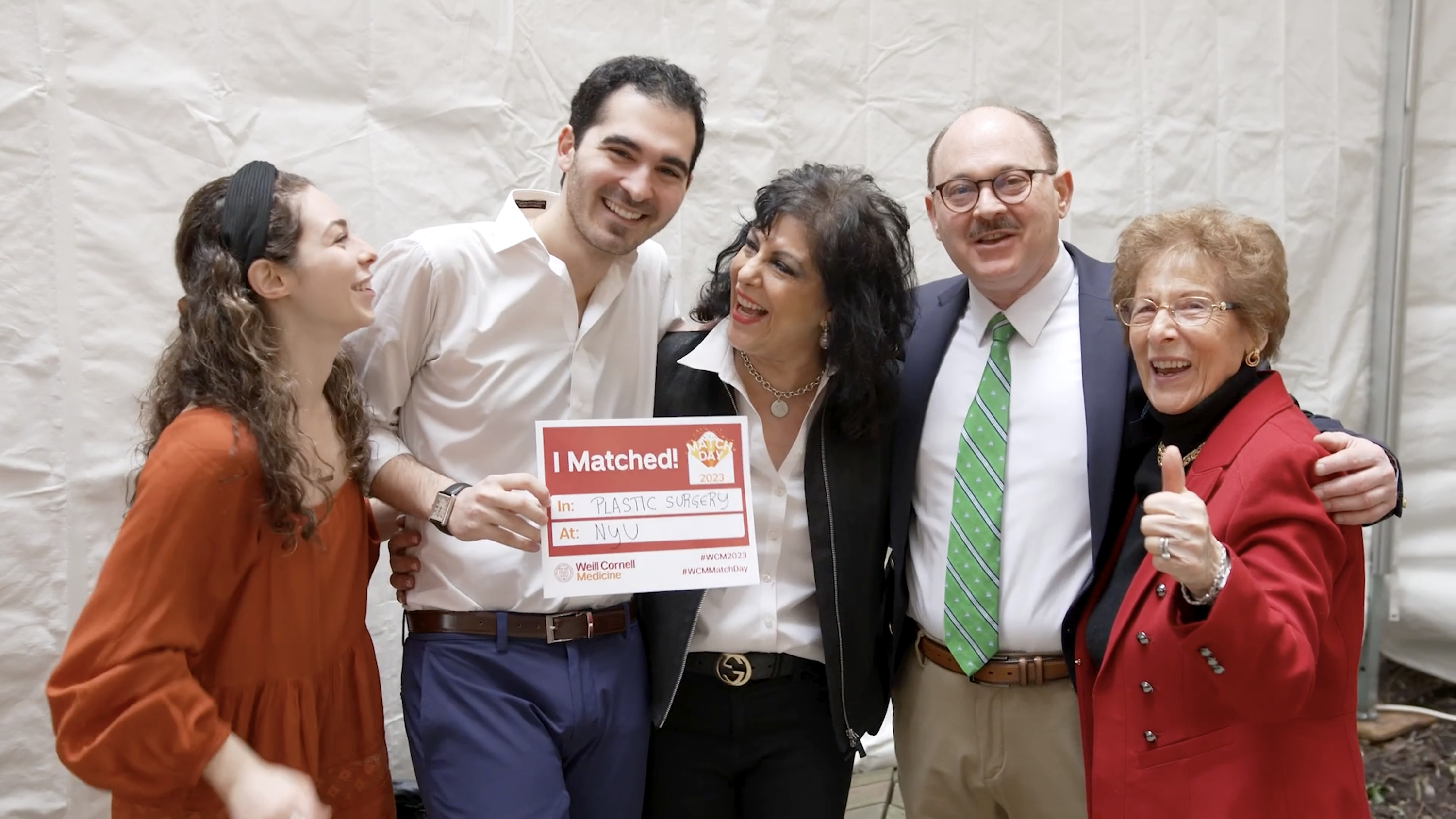
By Emily Gaines Buchler
As a child, Chimsom Orakwue watched her father, a computer engineer, suffer a debilitating back injury that left him unable to work. Her family, having immigrated years earlier from Nigeria to California, couldn’t pay for the health care he needed, so her mother enrolled in nursing school, while an 8-year-old Chimsom pitched in to care for her younger siblings.
Orakwue, who will graduate from Weill Cornell Medical College on May 18 and start a residency this July in internal medicine at NewYork-Presbyterian/Weill Cornell Medical Center, will now be the first in her family to work as a medical doctor, thanks, in part, to Weill Cornell Medicine’s debt-reduction program.
“This program made it all possible,” Orakwue said about the scholarship program created to slash debt for students with financial need, freeing them up to take full advantage of medical school, while pursuing a path in medicine based on their passions and interests. Established in 2019, the program covers tuition, fees, housing and living expenses.
With the median cost of attending four years of a private medical school amounting to $330,180, training to be a physician comes with a hefty price tag that deters many students from applying. “Data from the Association of American Medical Colleges shows that the majority of students entering medical school hail from the top two quintiles of family income in the United States,” said Dr. Jessica Peña (M.D. ’03), assistant dean for admissions and an associate professor of clinical medicine and medicine in clinical radiology at Weill Cornell Medicine. “Achieving excellence in patient care, education and research requires a diverse physician workforce, which are threatened by rising costs.”
Dr. Peña, who graduated from Weill Cornell Medicine in 2003, understands the high cost of medical school on both a professional and personal level. Although she received scholarship money to cover some of her tuition, she still had to take out loans to enroll as a medical student — a reality which the debt-reduction program would have altered.
“One of the reasons I thrived here as a student 20 years ago was the generous financial aid,” Dr. Peña said. “I didn’t have to work 30 hours a week, as I did in college, and could immerse myself in the work and community.”
Over the last four years, since the implementation of the debt-reduction program, Dr. Peña has heard countless stories from students sharing how much the support helps. “Students have recounted not having to hold down jobs for the first time ever, while having the freedom to pursue the career they’re most passionate about and being able to fully engage in the experience of medical school,” she said.
For Orakwue, the program made all the difference, enabling her to co-found a student-run initiative for Spanish-speaking patients and to serve as president of both the Student National Medical Association and the Students for Equal Opportunity in Medicine. In addition, Orakwue served as a board and planning committee member of the student group Watering My Garden, which provides a safe, nurturing environment for women of color, and was one of two students in 2022 to receive the Ida Sophia Scudder, MD Award for Excellence in Public Service, which recognizes students who provide care to the underserved and make significant contributions in the field of community services.
“[The debt-reduction program] lifted such a huge weight off of my life, giving me the freedom to focus on my craft, carve my own path, and really, just breathe,” Orakwue said. “It let me not only survive but also thrive in medical school, without the worry of burdening my family, who have already sacrificed so much.”

Nicholas Vernice (second from left) celebrates his residency match with his family on March 17 during national Match Day.
Graduating medical student Nicholas Vernice, who received support from the debt-reduction initiative and will start a residency this July in plastic surgery at NYU Langone Health, says the support helped him in similar ways. “The program alleviated a huge financial burden, allowing me to complete four off-site rotations and to dedicate myself to an intense year of basic science research,” Vernice said. With support from the debt-reduction program, Vernice was able to work for a full year in the lab of Dr. Jason Spector, a nationally renowned board-certified plastic surgeon and chief of the Division of Plastic and Reconstructive Surgery at Weill Cornell Medicine.
“The experience was transformative, and Dr. Spector was an outstanding mentor who gave me full autonomy over my own projects and taught me critical research steps, like how to ideate a working hypothesis, write grants, analyze data and publish my work,” he said. “I was able to attend and present at conferences and dive deep into my research and clinical work, without the pressure of wondering how I would pay for my next meal or worrying that I’m accruing a high level of debt that would be difficult to pay off.”
Ultimately, with the aid of the program, Vernice says, “I was able to be the best version of myself I could be.”
A version of this story will appear in the summer issue of Impact.

